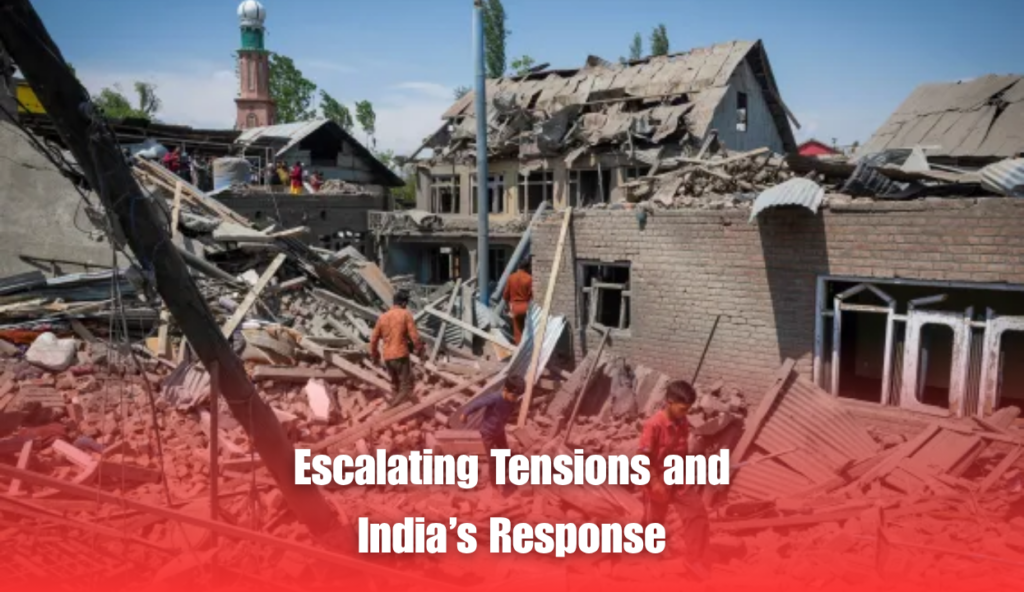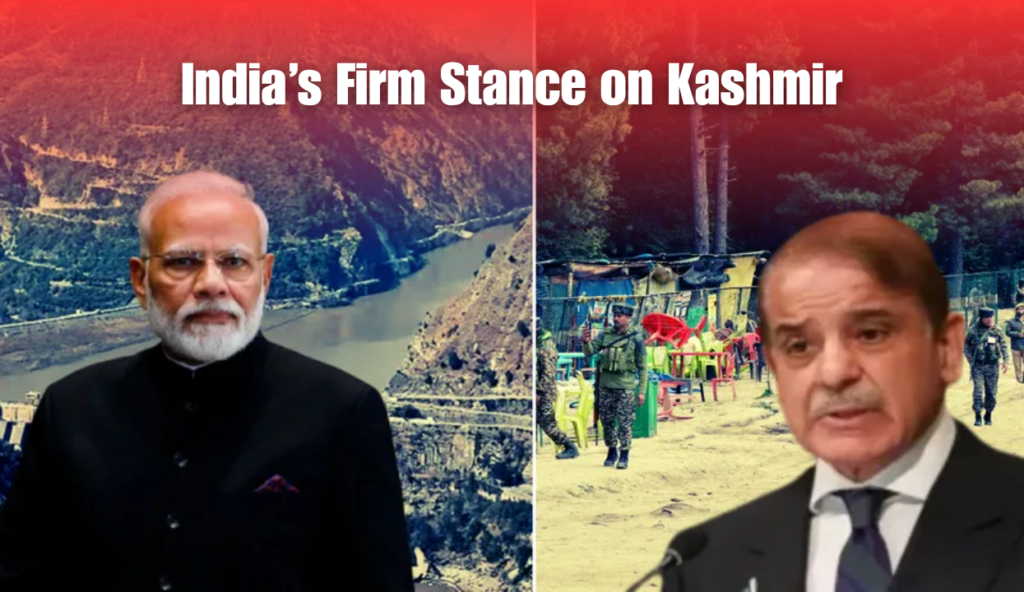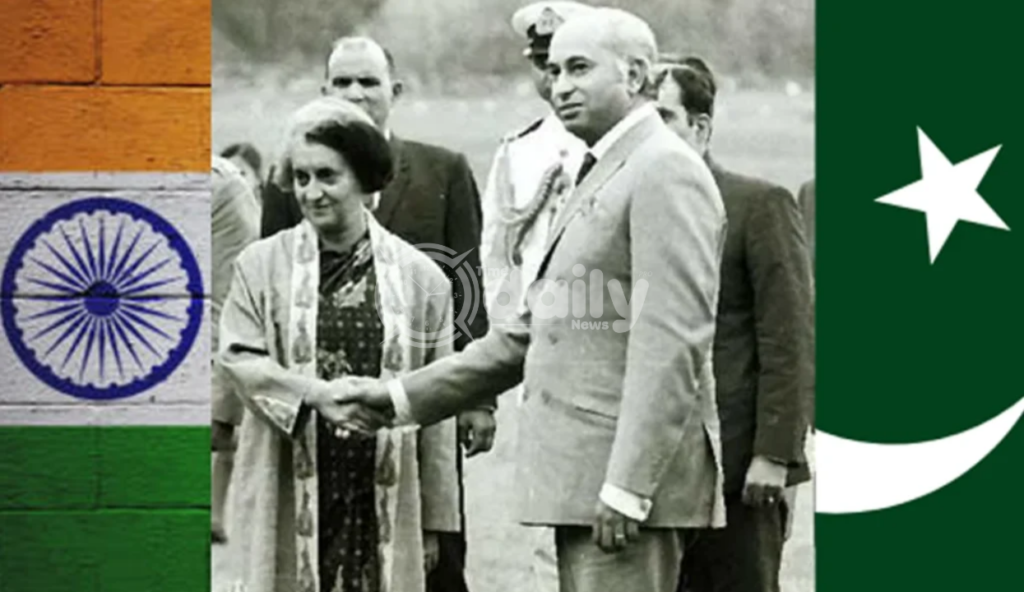For decades, one of the most sensitive issues for India has been the involvement of third-party mediators in the Kashmir dispute with Pakistan. This issue reached a new level of controversy when US President Donald Trump recently announced his willingness to mediate the long-standing conflict, making it a key point in Trump’s Kashmir Mediation efforts.
Trump’s Proposal: A Bold Move
On Saturday, President Trump used his social media platforms to announce a “full and immediate ceasefire” between India and Pakistan, mediated by the US. He further added, “I will work with you both to see if, after a thousand years, a solution can be arrived at, concerning Kashmir.”
This bold intervention caught the attention of the world, especially since the Kashmir dispute, which has its roots in the partition of India in 1947, remains unresolved. India views Kashmir as an integral part of its territory and has firmly rejected any third-party mediation.
Escalating Tensions and India’s Response

The recent flare-up in tensions began after India launched airstrikes on what it described as terrorist infrastructure in Pakistan. The airstrikes were a response to an attack in Indian-administered Kashmir, which killed 26 people, mostly tourists. India blames Pakistan for the attack, a charge that Islamabad denies.
Trump’s Kashmir Mediation offer came at a time when both countries were engaged in cross-border fighting, using fighter jets and missiles. US diplomatic intervention helped de-escalate the situation, but the US President’s comments have put India in a difficult position.
India’s Firm Stance on Kashmir

India has consistently opposed third-party mediation in the Kashmir issue. Shyam Saran, former Indian foreign secretary, commented, “This would not be welcomed by India. It goes against our established position.” In contrast, Pakistan has welcomed Trump’s intervention as a potential step towards resolving the issue.
The situation has become even more complicated after India’s decision to revoke the special status of Jammu and Kashmir in 2019. This move led to widespread protests and further hardened India’s stance on Kashmir.
The Role of the Indian National Congress Party
The Indian National Congress party has demanded an explanation from the government regarding Trump’s mediation offer. Party spokesperson Jairam Ramesh raised concerns about whether India was opening the door to third-party mediation, saying, “Have we started to welcome third-party involvement? We want to know if diplomatic channels are being reopened.”
Historical Context: The Simla Agreement

India’s resistance to third-party mediation is rooted in the 1972 Simla Agreement, which both India and Pakistan signed after the war of 1971. The agreement committed both countries to resolve their differences through bilateral negotiations. India has consistently argued that even when agreements were reached with civilian governments in Pakistan, the country’s military actions undermined those deals, pointing to the Kargil War in 1999 as an example.
Trump’s Impact on US-India Relations
While India has yet to officially respond to Trump’s offer, Foreign Minister Subrahmanyam Jaishankar reiterated India’s strong stance against terrorism and external interference, signaling that direct bilateral talks with Pakistan are unlikely to resume soon.
From Pakistan’s perspective, however, Trump’s intervention is seen as a moral victory. “Pakistan has always sought third-party mediation due to the lack of trust between the two countries,” said Imtiaz Gul, an analyst based in Islamabad. Pakistani experts argue that the international community’s involvement is crucial to prevent further conflict.
India’s Rising Global Influence and Its Dilemma
India’s growing stature on the world stage, particularly since Prime Minister Narendra Modi’s leadership, has been marked by assertive diplomacy. India has also cultivated strong ties with the US, especially in the context of countering Chinese influence in the Indo-Pacific region.
However, Trump’s recent comments place India in a delicate position. The US has strengthened its military and economic ties with India, but India’s sensitivity regarding Kashmir remains unchanged. Delhi now faces a challenge in balancing its strategic relationship with the US and maintaining its firm stance on Kashmir.
The Future of Kashmir Talks
India’s modernization of its military and growing trade relationship with the US add complexity to the Kashmir issue. Any attempt to broaden talks on sensitive issues like Kashmir or water-sharing treaties would likely face significant domestic backlash. Modi’s government is cautious not to open doors to third-party mediation, aware of the potential political consequences.
Conclusion
Trump’s Kashmir Mediation intervention has opened a new chapter in the Kashmir conflict, one that sees the US offering to mediate. While this proposal has been welcomed by Pakistan, it has caused discomfort in India, where third-party involvement remains a non-negotiable red line. As tensions continue to simmer, the global community will be watching to see how India navigates this delicate diplomatic situation.




